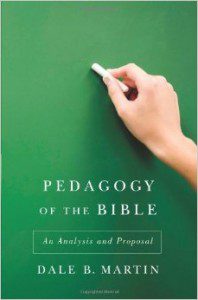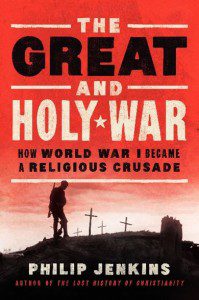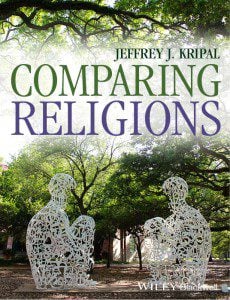Stephen Prothero, religion professor at Boston University, has a new book with the intentionally-provocative title God Is Not One: The Eight Rival Religions That Run the World–and Why Their Differences Matter. I have titled my review in an equally-provocative way, adapting the titled of J.B. Phillips’ famous mid-20th-century book Your God Is Too Small.
When pressed, Prothero quickly concedes that he is writing as a historian, not a theologian. But, as a theologian myself, I am inclined toward the larger questions that Prothero avoids. I will grant that given the immense diversity of our pluralistic world, we need to be honest about the major differences between religious traditions, and I applaud Prothero’s ongoing project of combating religious illiteracy. Nevertheless, after finishing his book, I was left wanting a larger framework for reflecting on how all the religious differences hang together. For readers similarly inclined, I highly recommend supplementing Prothero’s book with Paul F. Knitter’s excellent (but unfortunately-titled) book Introducing Theologies of Religions. (Knitter’s original title, which was changed so that the book could be incorporated into a larger series, more clearly conveys the content of his book — “Christianity and Other Religions: Problems and Promise.”
Initial objections aside, Prothero’s book has made me reflect on some of my own potential inconsistencies in approaching religious differences. Liturgical historian Paul Bradshaw writes about the difference between “lumpers” and “splitters;” that is, those who lump things together (highlighting commonalities) and those who split things apart (highlighting differences). Prothero is clearly a splitter, calling us to be honest about differences, even as he wants us to learn to live together peacefully despite our differences. As I have reflected on his perspective, it has occurred to me that I have a tendency to be a splitter in regard to early Christianity, pointing out along with scholars like Bart Ehrman and Elaine Pagels, that there was “original diversity.” But my tendency can be opposite today: being a lumper, emphasizing commonalities between religious adherents, as with my enthusiasm for movements such Karen Armstong’s Charter for Compassion.
In Prothero’s “Introduction,” he speaks about those of us like Huston Smith, who look for the largest possible sense of a ‘Source’ from which all religions emerge, as “not describing the world but reimagining it…. hoping that their hope will call up in us feelings of brotherhood and sisterhood” (6-7). As a pastor who regularly writes sermons with variations on this precise theme, I can only plead guilty as charged.
Having read Prothero’s survey of the world’s religions, my sympathies in each chapter were most with the aspects of each tradition that emphasized direct, unmediated, first-hand religious experiences. In contrast, I was least attracted to the second-hand, abstract, theoretical doctrine of each tradition. In other words, I am left with the impression that I have more in common with the mystics of all religious traditions than I do with doctrinaire fundamentalists within my own tradition of Christianity. Thus, in conclusion, I would recommend Prothero’s book as an accessible and up-to-date introduction to the world’s religions. But as a progressive Christian pastor, who is married to a Jewish woman, my personal interest lies most with those who are experimenting with, not only honestly acknowledging religious differences, but also with living into the tension of authentically holding religious differences within one person, one family, or one community. For anyone interested in exploring these issues of “hybrid” faith further, I leave you a recommendation of Paul Knitter’s most-recent and much more personal book Without Buddha I Could Not Be A Christian.












